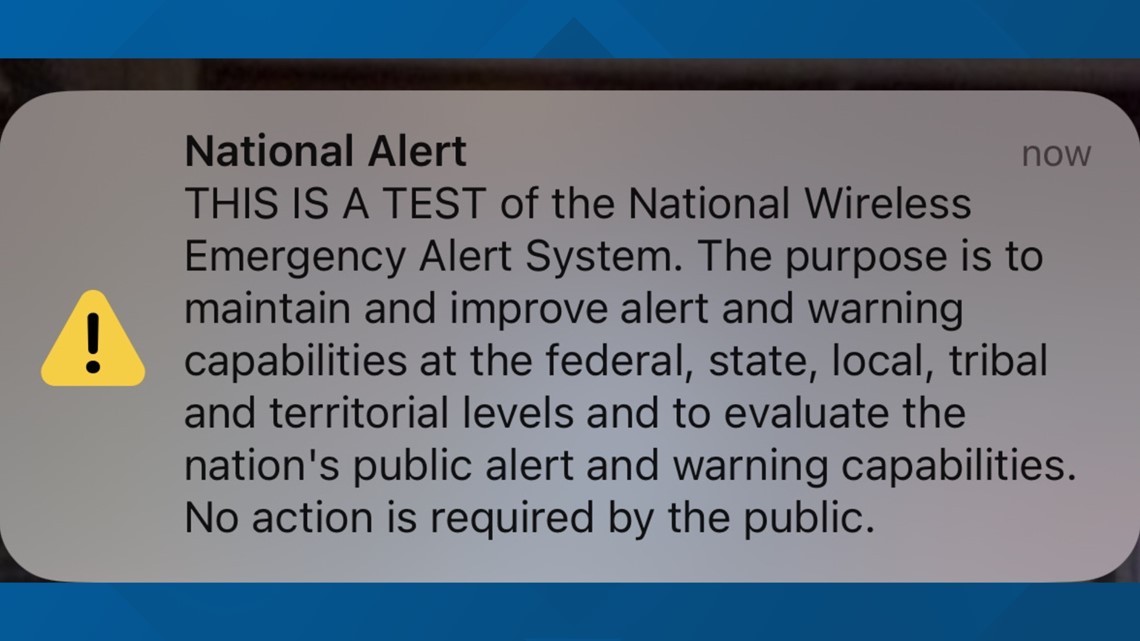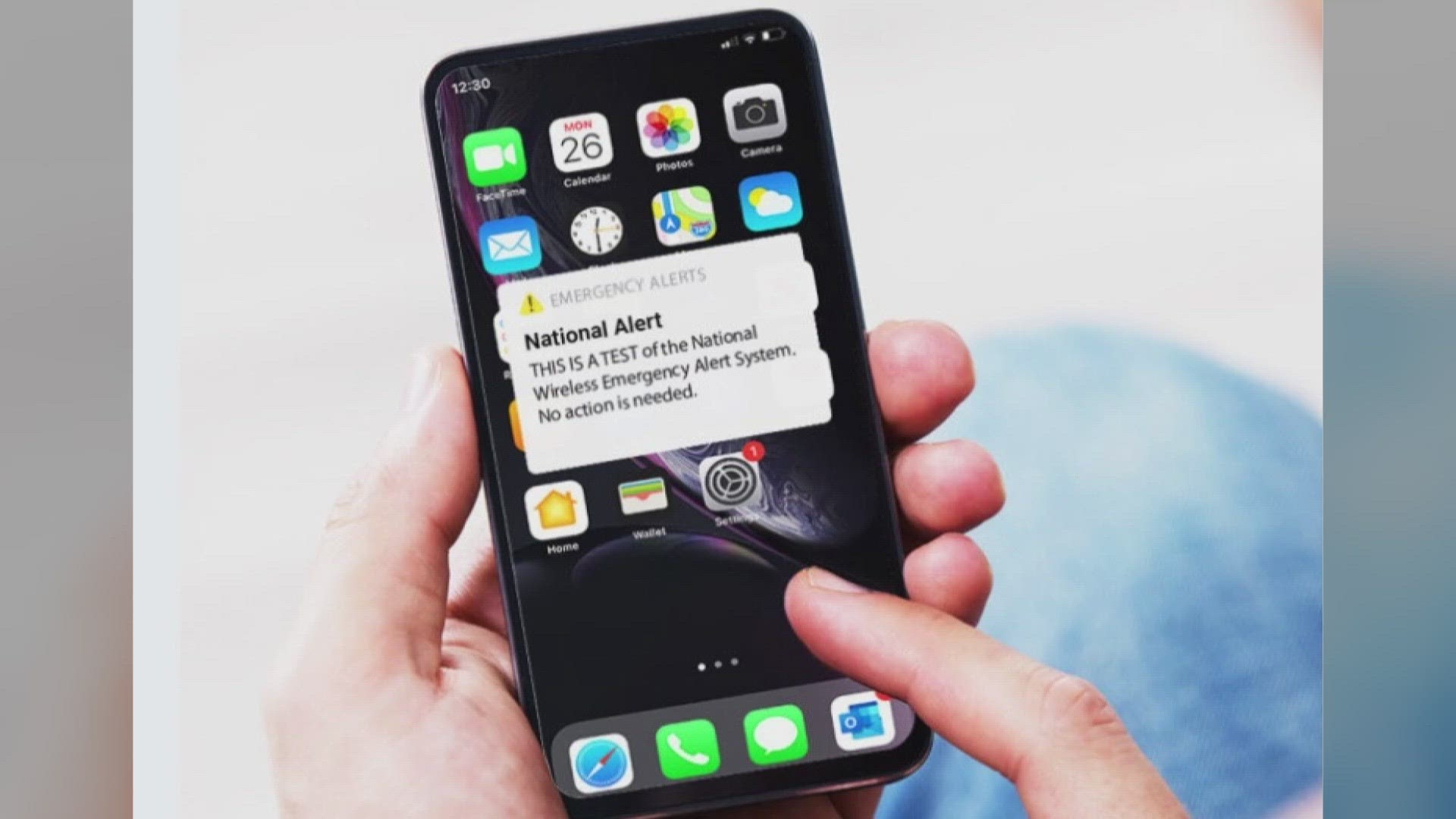WASHINGTON — If you have a cellphone, the message "THIS IS A TEST" likely flashed across your screen on Wednesday at approximately 2:20 p.m. Eastern (or closer to 2:18 p.m. Eastern) as part of the federal government's test of its emergency alert system.
But what if you didn't get that test on your cellphone?
According to FEMA, there are a number of reasons why you may not have received the national test.
Why did I not get the emergency alert?
One of the big reasons is that your phone may not be a Wireless Emergency Alerts (WEA) -compatible mobile device. While most newer phones are compatible, some older devices are not. Cellphone providers, including AT&T, T-Mobile, Verizon and more typically list online which WEA-compatible phones they offer.
Another reason you may not have gotten the alert was that your phone was off at the time, on airplane mode or not within the range of an active cell tower at the time.
According to FEMA, the national test would also not interrupt a phone call.
The test was conducted over a 30-minute window starting around 2:20 p.m., although mobile phone owners would only get the message once. So if your phone was turned off at 2:20 p.m. and then turned on in the next 30 minutes, the message would have appeared when the phone is turned back on. If you turn your phones on after the 30 minutes have expired, you won't get the message.
The Integrated Public Alert and Warning System sends out messages via the Emergency Alert System and Wireless Emergency Alerts. Federal law requires the systems be tested at least once every three years. The last nationwide test was Aug. 11, 2021.


Ahead of Wednesday's test, people suggested turning off phones to avoid disturbing students and teachers in classrooms or children during naptimes at day care. At the White House, messages taped to chairs in the press briefing room asked members of the media to turn off their cellphones.
The test has also sparked discussion about how it could affect people in abusive situations. Some people in abusive situations have secret cellphones — usually with notifications muted — hidden from their abuser that allow them to keep contact with the outside world. Organizations that work with survivors of abuse are recommending they turn off their phones entirely during the 30-minute-long test Wednesday so as to not have the blaring noise give away to their abuser the fact that they have a secret phone.

